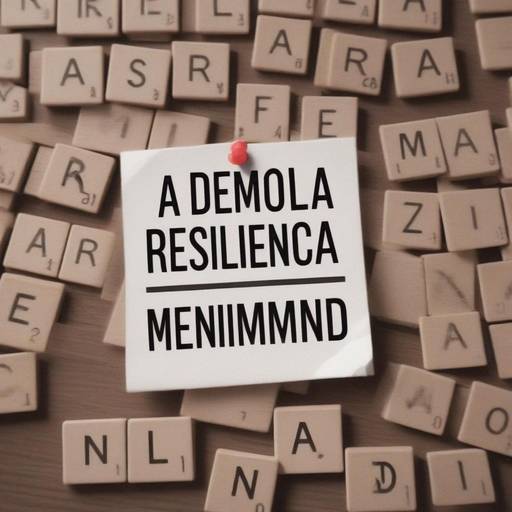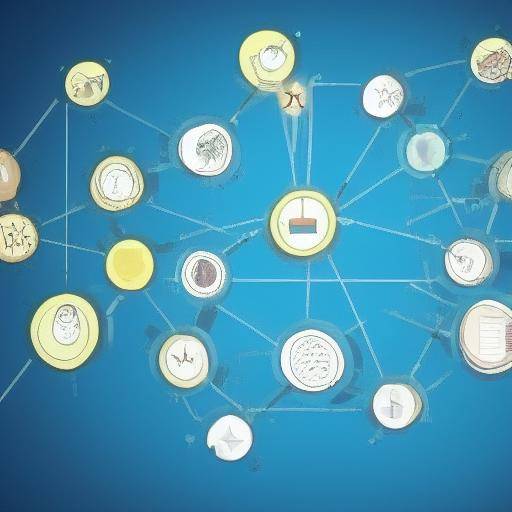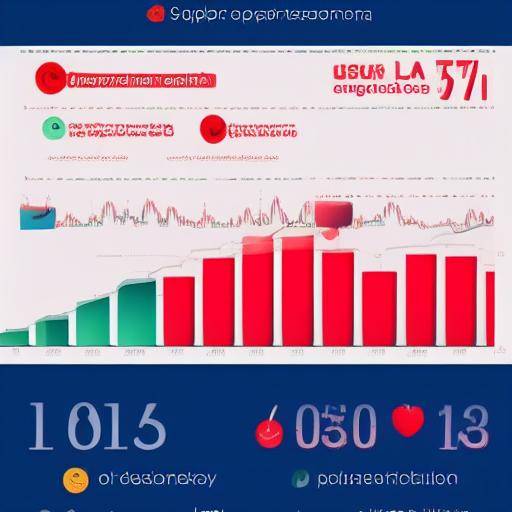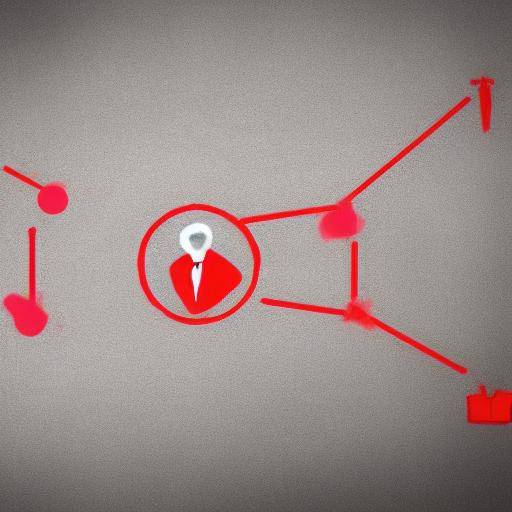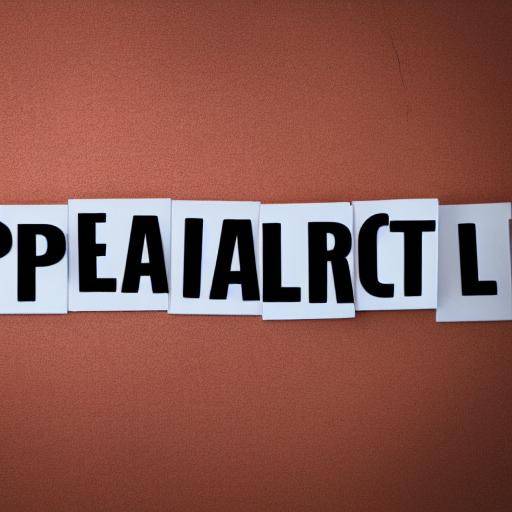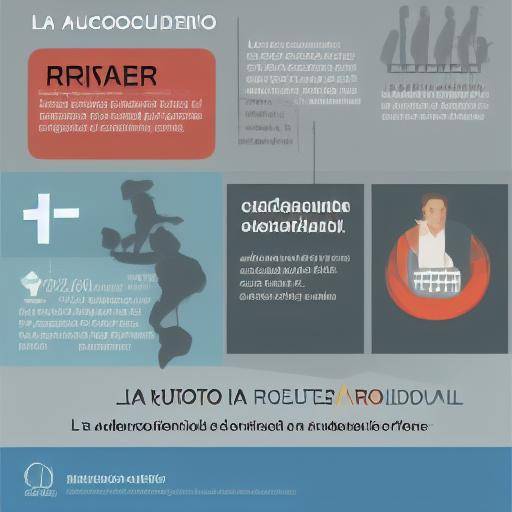
Introduction
Empathy and resilience are fundamental concepts in the field of interpersonal relationships and emotional well-being. In this article, we will explore in depth how the use of empathy can strengthen resilience in our lives. We will learn how these two concepts are intertwined and complemented, and how we can apply them to improve our interpersonal relationships and our ability to overcome challenges.
Empathy, the ability to understand and share someone else's feelings, is crucial in developing healthy and meaningful relationships. On the other hand, resilience, the ability to adapt and recover from adverse situations, is essential to confront the challenges of life. By combining empathy with resilience, we can strengthen our skills to face adversities, while building deeper and more meaningful connections with others.
History and Background
Empathy has been a central concept in various disciplines throughout history. From the teachings of philosophers such as Aristotle and Adam Smith to the psychological studies of Sigmund Freud and Carl Rogers, empathy has been the subject of deep interest and analysis. His importance in understanding human emotions and in building meaningful relationships has been the subject of numerous studies and reflections over time.
On the other hand, resilience has been a growing issue in areas such as psychology, sociology and education, especially in the context of overcoming trauma and adversity. His study has focused on understanding the factors that enable some people to face and overcome challenges, while recovering and continuing to grow emotionally.
Analysis in Deep
Reviewing how empathy contributes to resilience involves understanding how the ability to connect with others and understanding their experiences can strengthen our own ability to overcome difficulties. Empathy allows us to feel understood and supported by other people, which in turn can increase our resilience to the challenges of life.
Scientific evidence supports the idea that interpersonal relationships based on empathy can improve emotional resilience, offering a sense of belonging, support and understanding that are fundamental in times of adversity. Studies have shown that those who experience high levels of empathy tend to show greater ability to manage stress, adapt to difficult situations and recover more quickly from emotional crises.
In addition, empathy can boost the construction of stronger and more satisfactory interpersonal relationships. By being able to understand and respond to the emotions of others empathetically, we can contribute to a more collaborative, compassionate and mutually supportive relationship environment, which in turn promotes higher levels of resilience both individually and collectively.
Comprehensive review
In everyday life, the strengthening of resilience through empathy can be manifested in various dimensions, from personal to work. At the individual level, empathy allows us to establish stronger emotional ties with significant people, which in turn can be a key factor in the process of recovery and emotional growth in difficult situations.
In working environments, the promotion of empathy can foster a more collaborative and understanding environment, where individuals feel supported and valued, which in turn contributes to the ability to confront and overcome the challenges inherent in working life.
The development of empathy as a means of strengthening resilience not only involves an introspective and personal vision, but also a collective and community approach. By creating more empathic social and community environments, the development of a support network that enhances both individual and community resilience is encouraged.
Comparative analysis
By comparing empathy and resilience, you can see that both abilities have a significant impact on how people face challenges and build interpersonal relationships. While empathy focuses on understanding and emotional connection with others, resilience focuses on the ability to recover and adapt to adverse situations.
However, both skills are interconnected, as empathy can strengthen resilience by providing an emotional and social support system that is essential to overcome obstacles. Similarly, resilience can influence how empathy is exercised, as people who are able to recover from challenges tend to have greater willingness to understand and support others in times of difficulty.
Practical Tips and Accessible Recommendations
To strengthen resilience through empathy, it is crucial to actively practice empathic listening and seek to understand the emotions and perspectives of others. By cultivating relationships based on empathy, we can build an environment of mutual support that promotes greater emotional and relational resilience.
In addition, it is important to promote open communication and emotional expression in the environments we frequent, whether family, labor or community. Promoting mutual understanding and support can contribute significantly to strengthening resilience at the individual and collective levels.
Industry Perspectives and Expert Reviews
Experts in psychology, emotional well-being and interpersonal relationships agree on the importance of empathy as a tool to strengthen resilience. It is noted that empathy can be catalytic for the development of emotional skills, the construction of healthy relationships and the ability to face challenges with greater strength.
The specialists emphasize that, in a world facing constant changes and challenges, the ability to be empathic and resilient becomes increasingly relevant to the personal well-being and collective functioning of societies.
Case Studies and Real Life Applications
Numerous cases of study show how empathy has helped to strengthen resilience in various situations. From family environments to labor and community contexts, one can see how the practice of empathy has influenced people's ability to overcome adversities and build stronger and more meaningful relationships.
For example, cases of communities that have faced collective crises show how empathy has been a crucial factor in the recovery and reconstruction of community resilience. Similarly, in working environments, it is evident how the promotion of empathy has contributed to the construction of more supportive and resilient teams against organizational challenges.
Future Trends and Predictions
As society moves towards greater emotional and social awareness, it is expected that the promotion of empathy to strengthen resilience will be at the centre of various fields, from education and the workplace to community development and public policies.
The integration of practices that promote empathy and resilience in social and organizational dynamics is expected to have a significant impact on the ability of individuals and communities to face and overcome challenges, promoting healthier and sustainable environments.
Conclusion
In conclusion, empathy is a powerful tool to strengthen resilience both individually and collectively. By understanding and connecting emotionally with others, we can build stronger and more solid relationships, while developing the ability to face challenges with greater strength and adaptability.
The practice of empathy not only promotes emotional well-being, but also contributes to the creation of more compassionate and mutually supportive environments, which are essential for building a robust resilience. By integrating empathy into our interpersonal relationships, we are cultivating not only a deeper connection with others, but also a network of support that strengthens us against adversities.
Frequently asked questions
**1. How can I improve my empathy in interpersonal relationships?**To improve empathy, it is crucial to practice active listening, show genuine interest in the emotions and perspectives of others, and be aware of our own emotional reactions. In addition, practicing empathy requires putting one another's place and trying to understand his experience from his point of view.
**2. To what extent does empathy influence individual resilience?**Empathy plays a significant role in individual resilience by providing an emotional and social support system that is essential to overcome obstacles. Relationships based on empathy can strengthen emotional recovery capacity and promote greater adaptability to adversities.
**3. What impact does empathy have on working and organizational environments?**Promoting empathy in working environments can foster a more collaborative and compassionate environment, which in turn contributes to team resilience and the ability to face organizational challenges with greater emotional strength.
**4. How can empathy contribute to community resilience?**Empathy can contribute to community resilience by promoting solidarity, mutual understanding and emotional support among community members. These empathic relationships strengthen the capacity of the community to face collective challenges and recover from crisis.
**5. What practical strategies can I follow to integrate empathy into my daily life?**To integrate empathy into everyday life, it is essential to practice active listening, express sympathy and understanding towards others, and be willing to provide emotional support. In addition, cultivating relationships based on empathy strengthens the personal support network and contributes to individual resilience.
**6. What is the role of empathy and resilience in a context of crisis or natural disasters?**Empathy and resilience play a key role in crisis or natural disasters by promoting solidarity, mutual support and emotional recovery. Empathic relationships strengthen collective resilience and contribute to emotional and social reconstruction in adversity situations.
Conclusion
In short, empathy is a powerful force that can strengthen resilience and promote emotional well-being both individually and collectively. By cultivating empathy in our interpersonal relationships, we are building a support network that strengthens us against adversities, promoting more compassionate and supportive environments. Integrating empathy into our lives can be a fundamental element in addressing the challenges more resiliently, promoting personal and relational growth.

